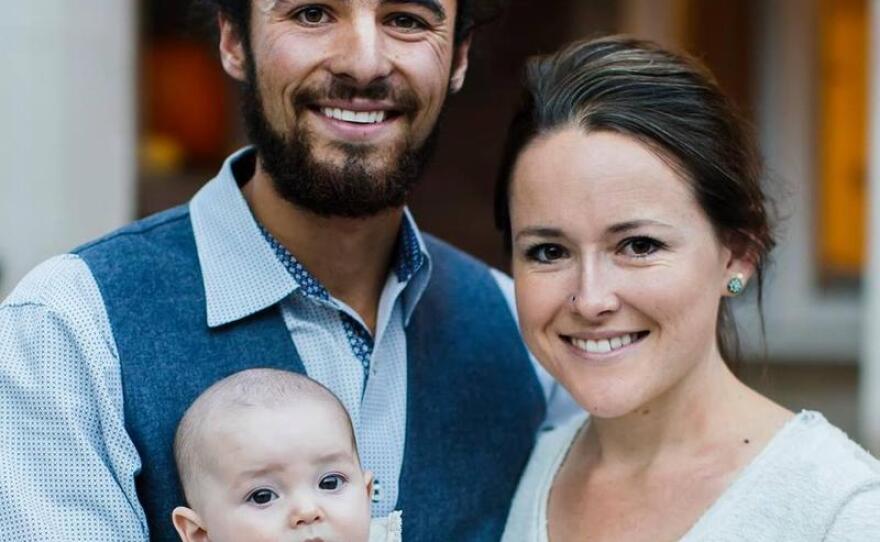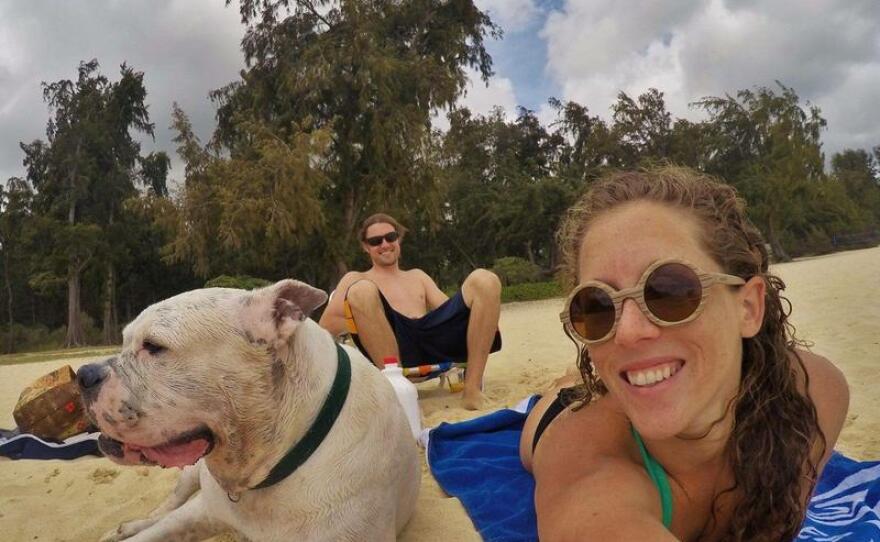Subscribe to terrestrial in Apple Podcasts.
My husband and I have been grappling with this question—in part because we wonder if it’s the right choice for the environment.
And I don't think we're alone. Others in my generation are having this same conversation. Which makes sense – for most of our lives, scientists have sounded the alarm about the greenhouse gas emissions we’ve pumped into the atmosphere. We know the planet is changing, because we see it happening: droughts and superstorms are becoming more common and temperatures and sea levels are rising around the globe.
In this episode of terrestrial, I spoke with people who want kids, people who don’t, and several scientists and experts with interesting perspectives on this universal question. The answer (spoiler alert, for those of you feeling the guilt creep in) is not that you shouldn’t have kids.
It’s complicated, of course. I kicked off this discussion with my colleague Ruxandra Guidi about how she approached this decision. She’s a journalist and has an adorable 4-year-old daughter named Camila. Rux started out saying that she believes choosing to have a kid is a decision that goes beyond reason.
“The decision to become a parent often kind of trumps any other things that we do in our rational, thinking lives,” she said. But that doesn't mean she doesn't worry. “What sort of world will my kid inherit?” she said.
I also spoke with Travis Sherman and Mary Finley, a young couple who live in Honolulu, about why they are choosing not to have kids – or at least not human kids. (They're pictured above with their 100-pound American bulldog named Tonka.)
Mary and Travis came to their decision to not have children in different ways. For Travis, who grew up in Las Vegas, it was watching the water level in nearby Lake Mead drop. After high school he joined the Navy, where he heard people talk about resource scarcity and global unrest tied to water shortages.
“I'm fearful of the world that we are making for ourselves,” he said. “I don't see us trying to change on a large scale. And so I don't see it getting better and that's why I don't want to have a child.”
Mary grew up in rural Washington state, married her high school sweetheart at 19 and figured they would have kids. But then she decided to go back to school and she said her perspective changed.
Now she wants to get a PhD in psychology. She knows having kids wouldn’t make that impossible, but it would be tough. And then there’s the environment.
“I think about that a lot, too. That we’re the problem — that our endless consumption is making it hard for all the other species that share the planet with us,” she said.
Americans are particularly responsible. We use about a quarter of the world’s oil, even though we are only 5 percent of the world’s population. So, a child born here in the U.S. will consume more resources, in the course of his or her life, than a child born in the developing world.
But for some, it's not about the numbers. Keenan and Brianna Fitzpatrick are a young Catholic couple who live on an organic farm outside Boulder, Colorado with their baby son, Jude. They “get” climate change and acknowledge that humans have contributed to the problem but they told me they plan to have as many children as God gives them.
“What if every person chose not to have children, just because of environmental issues,” Brianna said when I interviewed them. “Is that a reason to stop life as a whole? In my mind, no.”
Keenan sat next to his wife, listening, and then said, “It comes down to fear. I can look back at my life and say that every decision I’ve made out of fear has not been a good one.”
Keenan and Brianna don’t see a conflict between caring for the earth and having kids. Who knows, they say, maybe baby Jude will be part of the solution. For Mary and Travis, however, the conflict between our growing population and the environment is of enough concern to choose not to have kids.

But what if couples had just one kid, I wondered. Alan Weisman has written two books (“Countdown” and “The World Without Us”) about how our growing population affects the planet, but he said that having a kid can be an environmentally friendly choice.
“If we started tomorrow just having one child per family, we would continue to grow for a generation, and then we would peak and drop dramatically,” he said.
By the end of the century, we’d be down to 1.6 billion people on earth. That’s the human population that scientists say the planet can handle just fine. But how do we encourage that kind of policy without government intervention, a la one-child policy in China?
Alan said education is the best birth control.
“If you educate girls they solve the problem automatically without the government telling them what do,” he said.
If a girl gets through secondary school, on average she’ll have two kids or fewer. More education for women leads to lower birth rates.
As for me, even after reporting this episode, I’m still on the fence. And ultimately, this is a personal decision, so wherever you are on the baby environment spectrum, no judgment here and we hope you’ll share your thoughts.





